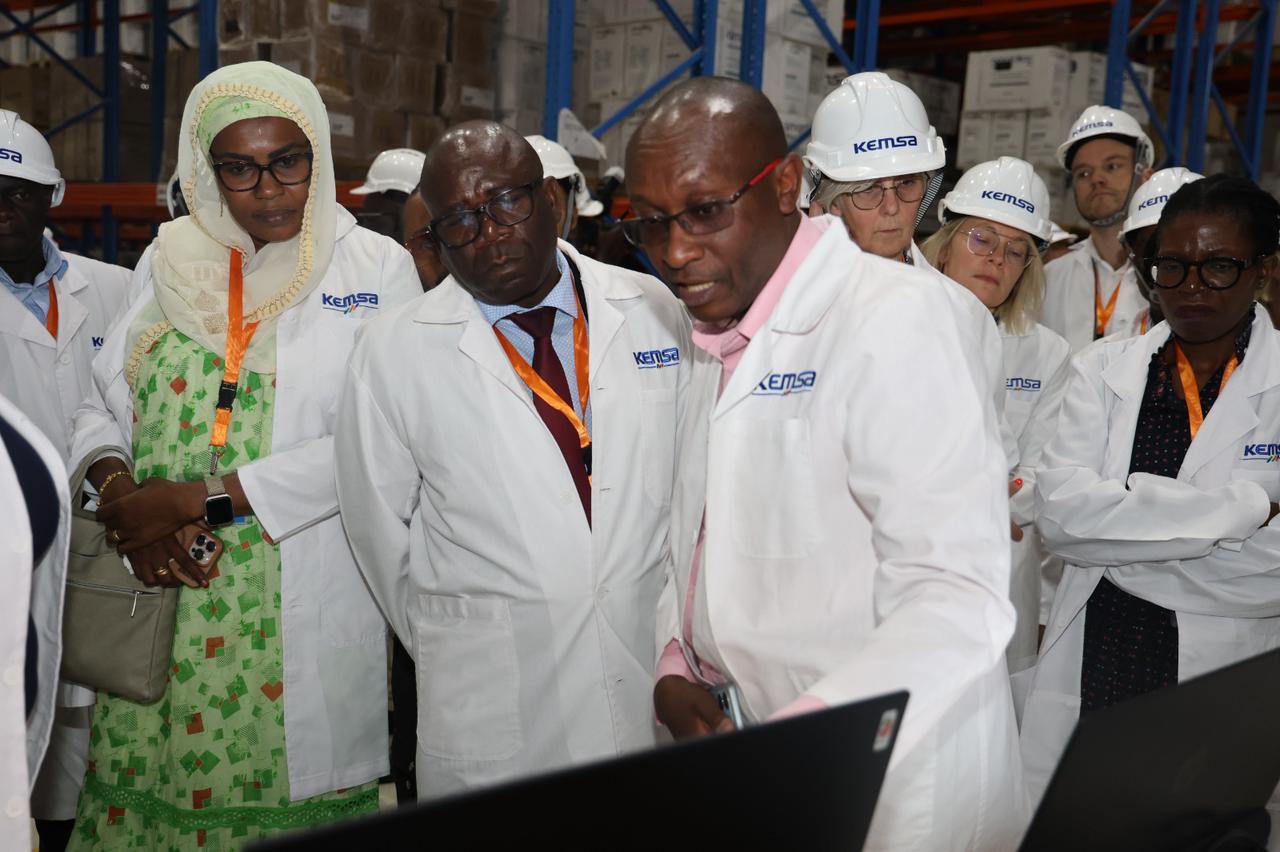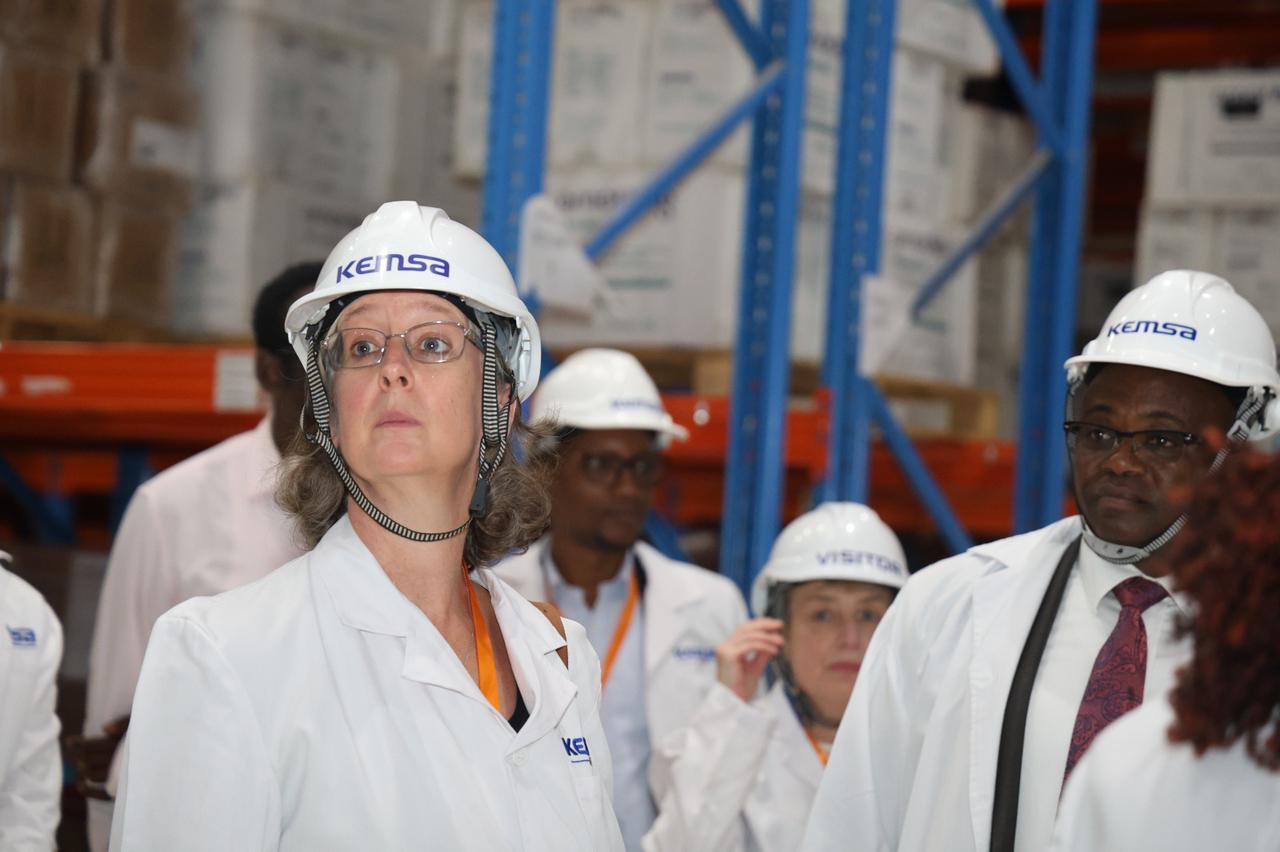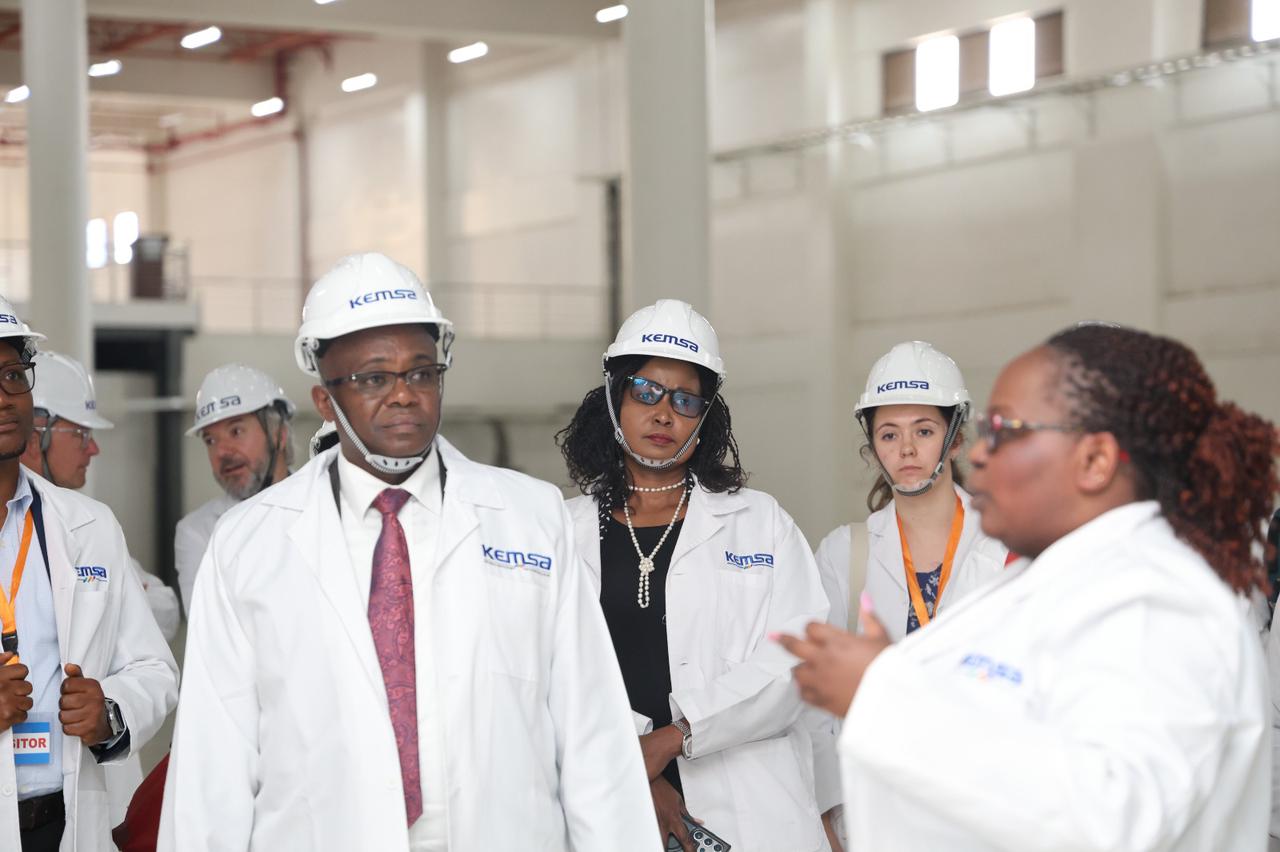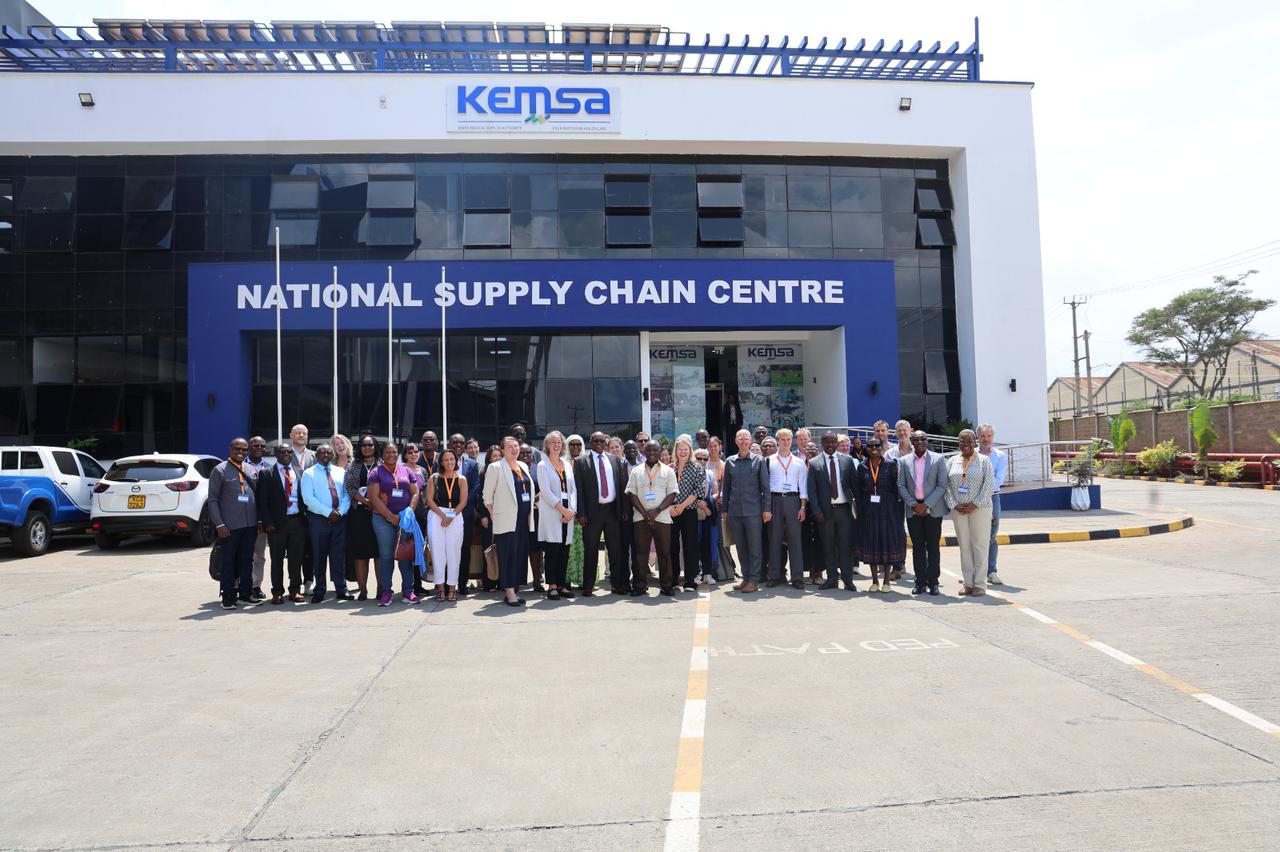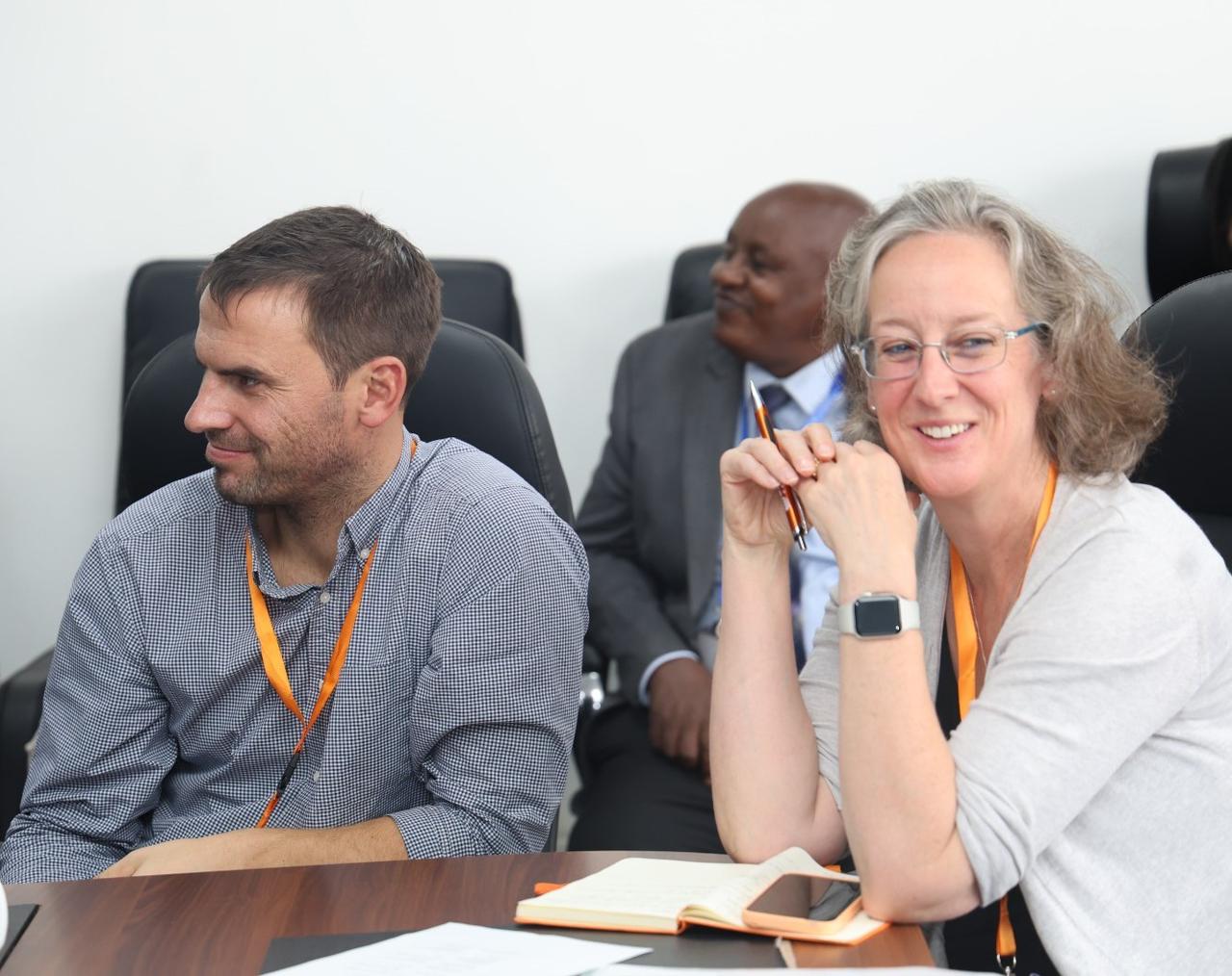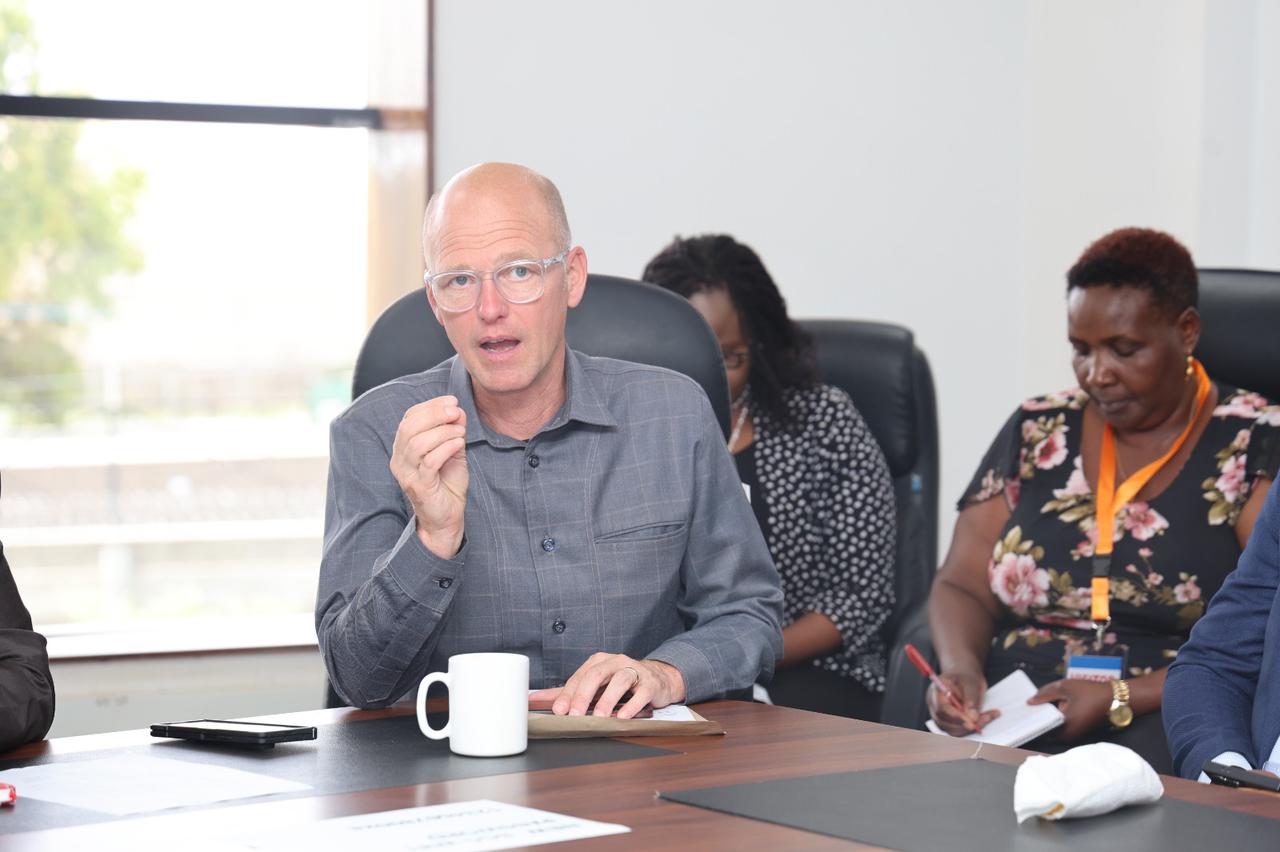UNFPA Lauds KEMSA’s Digital Transformation Ahead of National Family Planning Supply Chain Assessment
21/10/2025
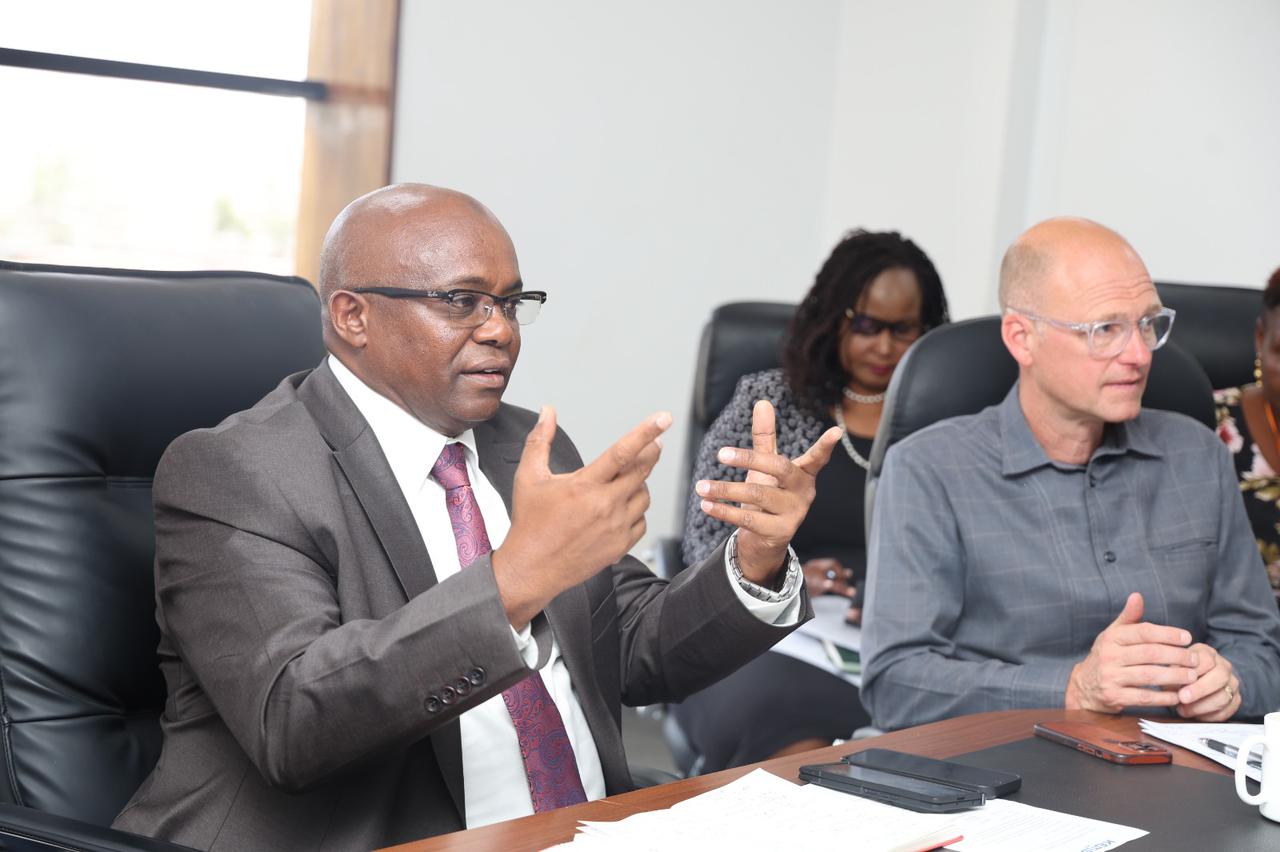
KEMSA Chief Executive Officer, Dr. Waqo Ejersa, today welcomed a high-level delegation from the United Nations Population Fund (UNFPA) to the Authority’s National Supply Chain Centre in Embakasi, marking the official start of the Family Planning Commodities Last Mile Assurance (LMA) In-Country Assessment.
The visit marks the start of a nationwide Last Mile Assurance exercise to evaluate Kenya’s reproductive health commodity delivery system from warehouse to health facility.
This evaluation, scheduled for October 23 to November 7, 2025, will span KEMSA, Nakuru, and Bungoma Counties, reviewing how reproductive health commodities move from the warehouse to the last mile.
Dr. Waqo reaffirmed KEMSA’s central role in advancing equitable access to family planning commodities nationwide through its robust warehousing and distribution systems. He emphasized that KEMSA’s Integrated Logistics Management Information System (ILMIS) has revolutionized the health supply chain by offering complete transparency and real-time visibility from order placement to delivery at facility level.
“The deployment of ILMIS has transformed how Kenya manages public health commodities,” said Dr. Waqo. “We now have precision in forecasting, visibility in distribution, and accountability at every stage ensuring no client is left behind.”
KEMSA’s Assistant Director for Health Informatics, Denis Ndwiga, showcased the ILMIS to the UNFPA team, highlighting its latest Artificial Intelligence-powered features. The upgraded system, built entirely by KEMSA’s in-house developers, applies predictive analytics to historical data to forecast demand at facility level. This innovation allows KEMSA and the Ministry of Health to anticipate needs, optimize deliveries, and prevent stockouts across all 47 counties.
UNFPA Representative to Kenya, Anders Thomsen, praised KEMSA’s transformation journey, commending the Authority for embedding technology, accountability, and transparency into its operations. “KEMSA’s systems now offer a model of excellence for the region,” he noted. “Every truck, every consignment, every delivery is tracked in real time and any deviation triggers an alert. That level of vigilance guarantees safety, integrity, and trust in the public supply chain.”
Thomsen further lauded the ILMIS for its international recognition, positioning Kenya among the world’s leaders in digital health logistics. He reaffirmed UNFPA’s commitment to continue partnering with KEMSA and the Ministry of Health to strengthen reproductive health supply chains and close the gap in unmet family planning needs.
The visiting delegation led by UNFPA Programme Division Director Julia Bunting and UNFPA Supplies Independent Committee Chairperson Ellen Starbird toured KEMSA’s state-of-the-art warehouse, observing firsthand the operational innovations and efficiency systems that have redefined the Authority’s service excellence.
The 2025 Last Mile Assurance assessment brings together UNFPA, the Ministry of Health, KEMSA, the Council of Governors, and representatives from Nakuru and Bungoma Counties. Its goal is to strengthen Kenya’s family planning supply chain by tracking commodity flows, verifying accountability mechanisms, and ensuring every product reaches its intended destination.
Building on KEMSA’s digital transformation, the exercise underscores Kenya’s growing leadership in data-driven healthcare logistics. Through strategic partnerships and cutting-edge innovation, KEMSA continues to anchor the nation’s quest for Universal Health Coverage ensuring that every Kenyan, regardless of location, has reliable access to essential reproductive health commodities.
